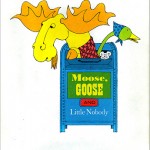Reading Out Loud
1.
There is a framed photograph sitting on top of my rolltop desk, the left-hand side. Say you’re someone who is drawn to faces. Say you’re also someone who looks at faces first, in pictures. If you saw the picture for the first time, your eye might be drawn to the bottom left corner of the picture first: the largest dark spot of the picture, the back and right side of my auburn head, my face in profile. Then you might glance at my dad’s dark head above mine. Following my dad’s gaze, completing the triangle, you would find my baby sister’s face. Following her gaze, you’d see what the three of us are looking at: a children’s book. It’s a picture that my mom took of me, my dad, and my baby sister, twenty-something years ago. We’re all lying down in bed, reading out loud.
I wonder if I put the photograph there because I’m left-handed, and so I placed it at the writing-hand side of my desk.
2.
I love thrift stores, but usually not for the books. It’s not because I don’t like used books. Powell’s, the city-block-big, six-floor Portland bookstore, is one of my ideas of heaven. No, it’s because the filters that Goodwill sets for its acceptance rate must be pretty different than the filters set for used bookstores. The children’s book section at my favorite Goodwill has, inexplicably, a high ratio of Christian “Little Golden Books” to just about anything else. But then came the day I found this book in the thrift store, which restored my father’s voice.
3.
For the sake of literary symmetry, wouldn’t it be great if that book was the book in my framed family picture? Alas, it’s not.
4.
“One day, a big wind blew. Trees fell, and a gas pump flew….” The book is by Ellen Raskin, and it’s called Moose, Goose, and Little Nobody. Published in 1974, a year after I was born, the book’s illustrations seem to me a product of the long 1960s: delicate outlines of pen-and-ink drawings, filled in with psychedelic colors like coral and chartreuse. It’s a sweet, funny book, about a little mouse (“Little Nobody”) whose house is blown ventolin inhaler price uk away by a tornado—that “big wind” of the first line. He bumps into Moose and Goose, who decide to help him find his name, his house, and his mother.
5.
I put the book in my thrift store shopping cart. I don’t look at it again until I am reading to my daughter, Celia, that night. And from the very first page, to the very last line, there is my father’s voice: (gruffly) “’Hello, Gas,’ said Moose, ‘howdy-do.’”
I am reading it, and there’s my dad’s voice again: his intonations, his alternating between Moose’s avuncular silliness, Goose’s motherly concern, and Little Nobody’s squeaky anxiety.
I am reading it, and there is my father’s voice, in a way I haven’t heard in over twenty years. I was born before the digital age. My dad was an amateur photographer, not a videographer. I think we have one audio tape of my dad’s voice. I don’t know where that tape is.
Even stranger: I don’t think I would ever have read this book out loud, even to myself. Even though to my last day I would passionately defend the importance of reading out loud to children, I can’t believe it:
I am reading the book to my daughter. My dad is reading the book to my daughter. To his granddaughter, whom he never met.
6.
For the sake of literary symmetry, I’d like to tell you that the book is about the mouse trying to find his father. But it’s not. For the same reason, I’d also like to tell you that when I showed this book to my mother and my sister, they remembered it, too. But they don’t.
I don’t mean to criticize them, of course. My dad was a librarian. He checked out, brought home, and read us bookshelves upon bookshelves of books. However, this also means that the memory is just mine.
7.
We writers often write against loss, against death, which our culture may regard as the same thing. But that evening I remembered again how many times the written word has saved me, has restored to me what I thought was lost forever.
These are the luminous, the numinous, ways that we may regain our dead.

